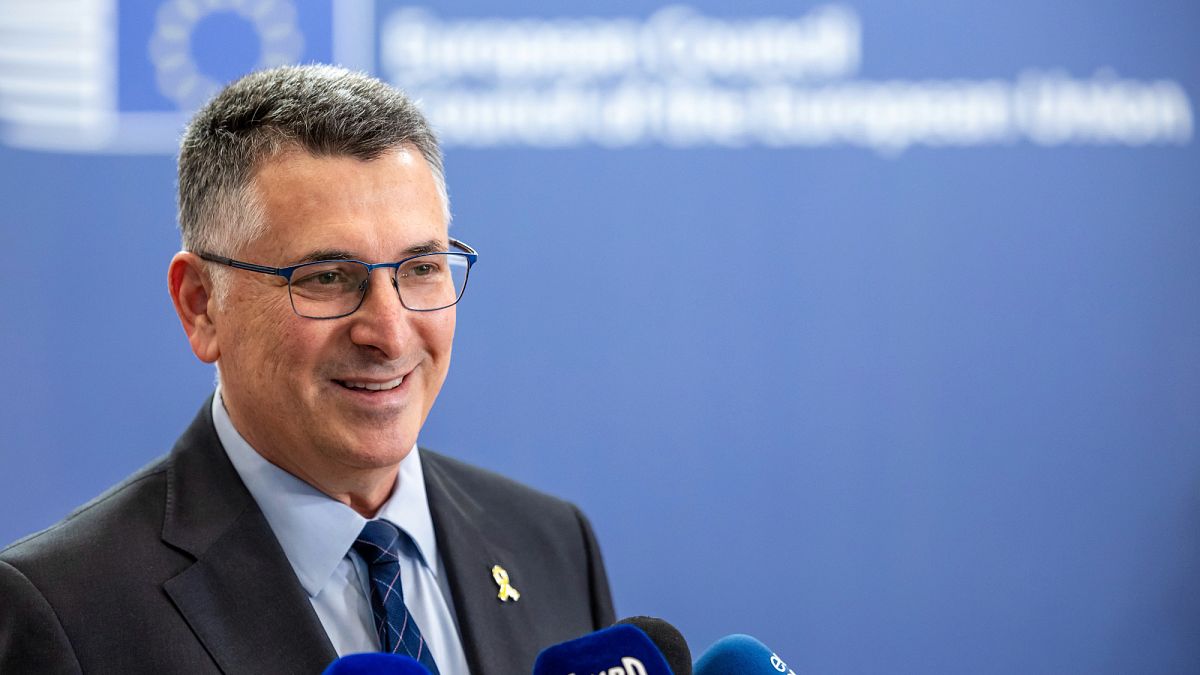

In recent developments, significant strides and discussions have taken place regarding both the Israeli-Palestinian situation and support for Ukraine, illustrating the intricacies of global diplomacy and the pursuit of a balanced future. Each development holds its unique impact on international relations.
Israel has made it clear through its Foreign Affairs Minister, Gideon Sa’ar, that it holds no plans to exert long-term control over the Gaza Strip. Instead, emphasis has been placed on addressing security concerns in the region. This stance aims to focus on maintaining safety while potentially opening pathways to broader discussions on the region’s future. Such declarations could herald a step forward in easing tensions that have long overshadowed productive dialogue. By underscoring a dedication to security over territorial dominance, Israel appears to be signaling a willingness to explore different resolutions beyond extended occupation.
As the international community continues to engage with Israel and Palestine, efforts are being made to facilitate a sustainable two-state solution. However, expectations for swift resolutions remain tempered. The upcoming UN summit on July 28 and 29, which will address the two-state solution, faces uncertainty without the attendance of French President Emmanuel Macron. Macron has been a vocal advocate for recognizing a Palestinian state, emphasizing the two-state solution as pivotal for regional peace and stability. Despite his absence potentially hindering substantial announcements, ongoing diplomatic efforts underscore a committed pursuit of progress amid complex geopolitical landscapes.
Meanwhile, interconnected issues shed light on the broader reach of global diplomacy as the United States reaffirms its support for Ukraine. A recent meeting between the US envoy to Ukraine and President Volodymyr Zelenskyy marked a positive milestone. The outcome was notably productive, with the US expressing readiness to bolster Ukraine’s defense capabilities by sending Patriot missile systems. This development follows months of ambiguous signals regarding continued US assistance to Kyiv, reinforcing the alliance between the two nations and emphasizing the international community’s supportive stance toward Ukraine’s sovereignty.
Together, these narratives highlight a world continuously striving for peace, balance, and security. While the path to resolution in each case holds its complexities, the shared commitment across borders resonates with the enduring pursuit of equanimity and mutual respect among nations.
In the heart of these developments is the diligent effort undertaken by leaders and diplomats from various corners of the globe, all striving for a harmonious world order. Understanding and trust become essential vehicles for these negotiations as parties involved seek paths toward playing transformative roles in internationally shared goals. With an empathetic focus on common objectives, recognizing and addressing shared concerns helps guide the policy-making apparatus toward embracing change while minimizing resistance and misunderstanding.
As details unfold, the international eyes remain fixed on how these multifaceted efforts will continue to shape the future geopolitical landscape. In a world increasingly interconnected, hope and perseverance appear as potent allies in navigating complex issues. These moments in history may provide positive impetus to steer toward resolutions envisioned by leaders and diplomats striving for a peaceful and prosperous world.
Source: {link}
